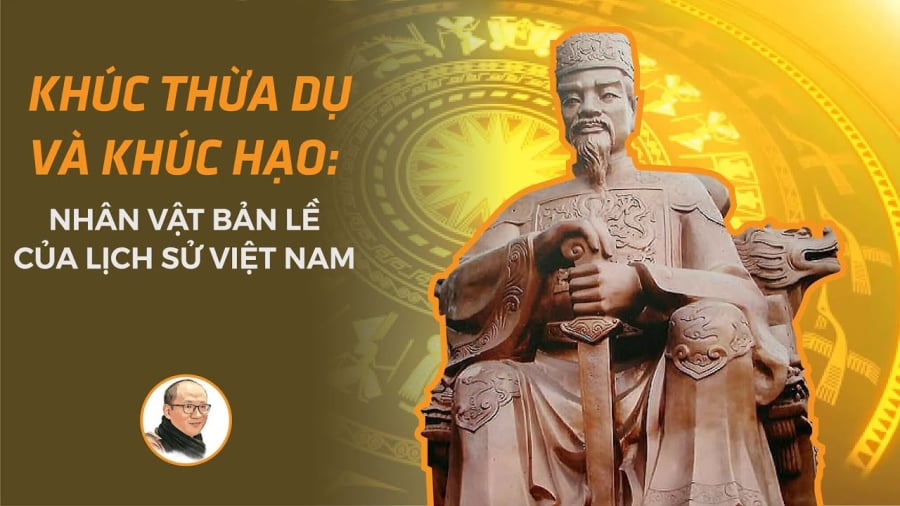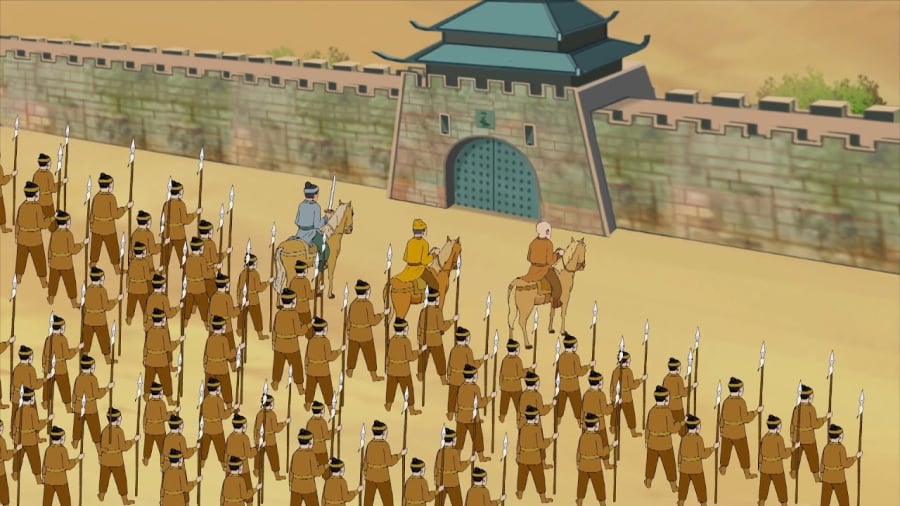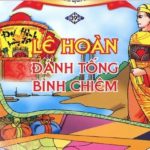According to the History of Vietnam, China in the late 9th and early 10th centuries became chaotic, and peasant rebellions everywhere shook the ruling system of the Tang Dynasty. The vassal government in Giao Chau (the name for Vietnam at that time) also weakened. Following the major uprisings of Mai Thuc Loan, Phung Hung, local officials successively rose up and established bases everywhere.
In that situation, at the beginning of 905, Khuc Thua Du – the leader of Hong Chau (now part of Ninh Giang district, Hai Duong province), known for being “generous, compassionate, and respected by the people”, launched a rebellion against the Tang Dynasty, seizing power over the country.

“By reclaiming power from the feudal regime in the North, Khuc Thua Du put an end to over 1,000 years of feudal rule in the North. History remembers his contribution as one of the foundations for the independence and autonomy of our country,” writes the History of Vietnam.
After driving out all the invaders from our country, instead of proclaiming himself a king or emperor like his predecessors Mai Hac De and Phung Hung, Khuc Thua Du only assumed the title of Tiet Do Su (equivalent to an official position overseeing the whole region of An Nam Su – present-day Vietnam). Nevertheless, Khuc Thua Du is still honored in history books and by the people as “Lord Khuc”.
The History of Vietnam comments: “Although he held the position of a Tang Dynasty official (Tiet Do Su), in reality and essence, the government of Khuc Thua Du was a self-governing one, establishing the foundation for our country’s long-lasting independence.”
In 906, the Tang Dynasty was forced to recognize the government of Khuc Thua Du and granted him the title of Tinh Hai quan tiet do su Dong binh chuong su.
After one year of governing the country, Khuc Thua Du passed away. His son, Khuc Hao, immediately succeeded him and retained the capital in La Thanh (present-day Hanoi).
Continuing the task of governing the country, Khuc Hao implemented many important reforms, replacing the regime of the Tang Dynasty.

The most significant change in their administrative reforms was that they held power down to the village level. Throughout the period of northern rule, although the northern regime could only govern at the district level, Vietnamese villages remained areas of self-governance, subject only to indirect rule by the colonial government.
“Vietnamese villages continued to exist tenaciously… It was from the villages that our people gained the country. The Khuc family represented the indigenous tribes, the new leadership class of the Vietnamese people, who took control of the country, putting an end to over 1,000 years of northern rule,” the book states.
In terms of the economy, the government of Khuc Hao implemented the policy of “equal land tax and exemption from forced labor.” In the past, the northern feudal regime feasted upon the people, levying various types of taxes and imposing heavy burdens, causing resentment among the people. Now, the Khuc family implemented a system where land belonged to the community, dividing it among the households for cultivation, and levying taxes evenly based on the area of land allocated to each household.
Forced labor, which was a burdensome practice imposed by the northern regime, forcing people to search for pearls, hunt elephants for ivory… was abolished by Khuc Hao, along with the poll tax.
The reforms carried out by the Khuc family laid a solid economic and social foundation for the later independence and autonomy of the Vietnamese people.
Khuc Hao assumed power (in 907) when the Tang Dynasty (China) collapsed under the invasion of the Later Liang Dynasty.
After gaining control of the northern region, the Later Liang Emperor continued to recognize the government of Khuc Hao, granting Khuc Thua Du the title of Tiet Do Su Tinh Hai quan.
However, one year later, the Later Liang Emperor appointed Lưu Ẩn as the Deputy Tiet Do Su Giao Chau. This shows that the northern regime still aimed to reassert control over our country.
Nevertheless, under the steadfast rule of Khuc Hao, the Lưu family and the Later Liang Emperor did not dare to encroach upon the southern region.
In 917, Khuc Hao passed away, and his son, Khuc Thua My, succeeded him. Due to mistakes in foreign policy, Thua My only held power for 6 years before the Southern Han Dynasty sent troops to attack, captured him, and brought him back to the northern region.
Before being captured, Khuc Thua My entrusted trusted generals to govern the provinces in the northern territory of the Red River Delta. Among these generals were Dinh Cong Tru (the father of Dinh Bo Linh) who was in charge of Hoan Chau (present-day Ha Tinh), Ngo Quyen who was appointed to govern Ai Chau (present-day Thanh Hoa)…































